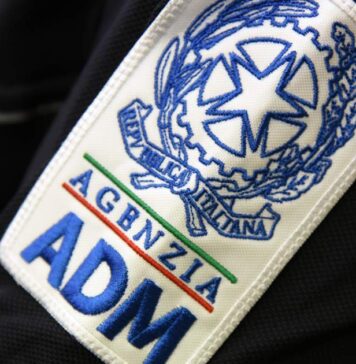Il Betting and Gaming Council, urged the Chancellor not to use a new gambling tax simplification measure to further increase taxes by undermining funding for sport, including horse racing.
In the autumn statement the Government confirmed that it will consult on new proposals to bring remote betting into a single tax, replacing the current three-head tax structure.
The general betting tax and pool betting tax are set at 15% of the operator's profits, while the remote gaming tax, levied on gambling games such as online casinos, is set at 21% .
Any increase in the betting tax would likely lead to lower margins on racing, fewer offers for bettors and less funding to sponsor and promote the sport.
The tax threat comes as revenues have already been strained by so-called affordability checks on customers, plans to replace the current voluntary levy with a new statutory levy to fund research, education and treatment to tackle gambling-related damage and the skyrocketing costs for betting operators to support horse racing.
Michael Dugher, chief executive of the Betting and Gaming Council, said: “Any further new tax increases could be a blow to horse racing's finances, which are already under threat thanks to measures proposed by the government in the recent white paper.
This is a sport that relies heavily on betting operators, yet the government seems determined to draft measures that restrict the industry. What's worse, the Treasury didn't bother to consult or even inform the DCMS, which is the department responsible for betting and racing. There are real fears that any so-called simplification of the current tax structure will be nothing more than a horse to further increase corporate taxes. This has the potential to put jobs and investment at risk and undermine the competitiveness of British horse racing on the global stage, endangering its rich history and heritage. We were promised an autumn statement that would lead to growth – the only thing that is growing is the list of concerns for the betting and horse racing industries.”
The proposed new tax simplification plan comes just after the Government's White Paper, published in April, included measures that will cost online operators more than £895m in gross gambling returns. And it comes as bookmakers are preparing to make a record contribution to horse racing next year, with the media rights bill expected to rise by almost £30m.
The five largest members of the Betting and Gaming Council for horse racing betting, Entain, Flutter, bet365, 888/William Hill and Betfred, expect to see a record increase in costs for broadcasting races. In 2022, BGC members paid £270,1 million for the rights to live stream races for customers and show them in bookmakers. But the cost is forecast to rise to £285,3m this year, a rise of 5,6%, with members estimating a further increase to £315,2m in 2024, a further rise of 10,5%.
The projected costs come after the BGC announced that its members directly contributed £384 million to British horse racing last year in levies, media rights and sponsorship deals. Additionally, bookmakers spent £125 million on marketing to promote racing and betting through advertising and partnerships.
Horse racing is the UK's second biggest sport, second only to football, with over five million people attending around 1.400 matches a year across 59 racecourses. However, its popularity is declining. In 2007, 17% of the population participated in horse racing betting the previous year, but this fell to 10% in 2018. The Department for Culture, Media and Sport has committed to reviewing horse racing tax horses within the next year.
The Horseracing Levy, which is administered by the Horserace Betting Levy Board, aims to improve sport, breeding and increase veterinary care. Betting operators are working closely with the British Horseracing Authority and racing stakeholders on much-needed reforms to the fixture calendar and racing programme, which are expected to increase commercial returns from tax and media rights.
Betting shops support 42.000 jobs on the UK's high streets, generating £800m a year in tax for the Treasury and a further £60m in business tax for local councils. But this contribution is at risk, the combined impacts of recent regulatory reforms and Covid lockdowns have forced the closure of over 2.000 shops with the loss of 10.000 jobs since 2019. The regulated betting and gaming industry contributes 7,1, £4,2 billion to the economy, generates £110.000 billion in tax and supports XNUMX jobs.
The BGC has repeatedly warned that changes to the regulated betting and gaming sector by the Government must not risk forcing customers into the black market of unsafe online gambling. A study by PWC showed that the number of customers using an unlicensed betting site has grown from 210.000 to 460.000 and billions are being wagered. Every month in Britain around 22,5 million adults have a gamble and the most recent NHS Health Survey for England estimated that 0,4% of the adult population are problem gamblers.












